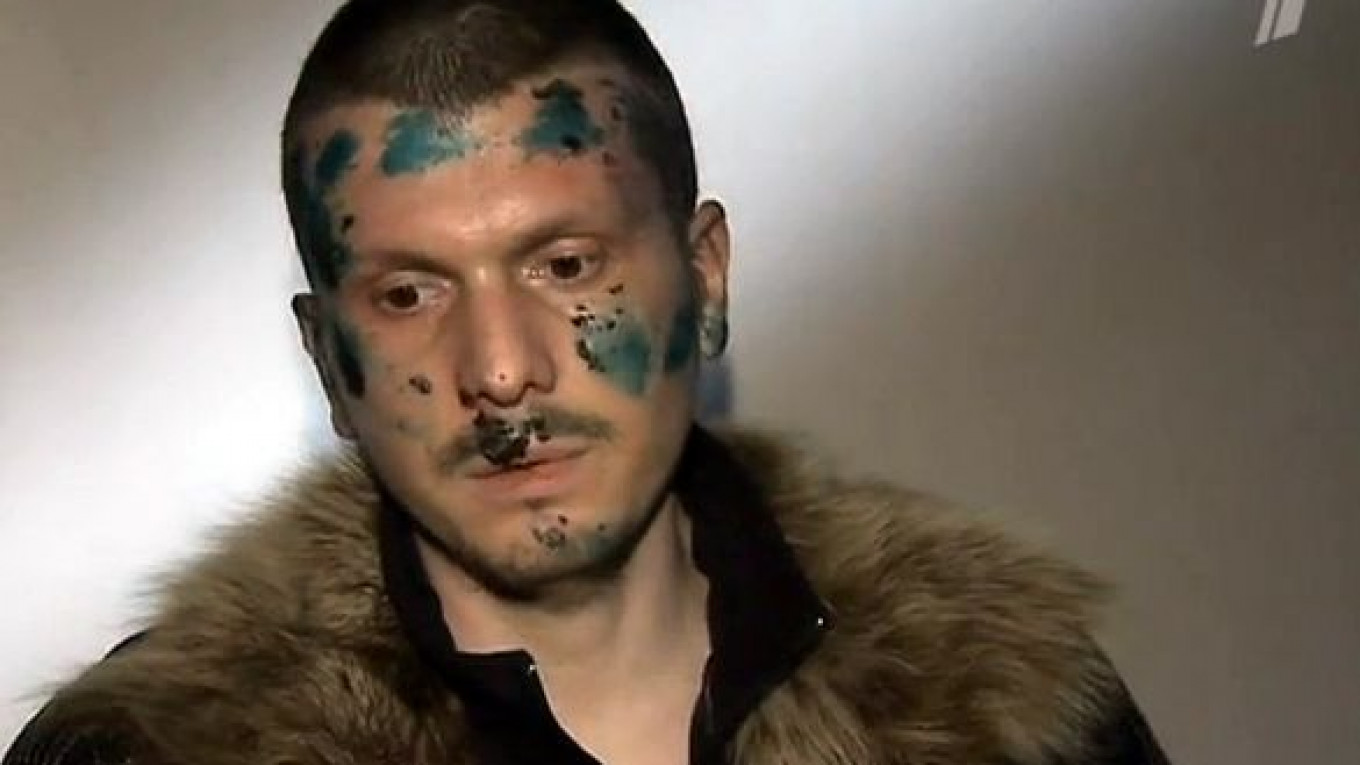A Chechen detained in Ukraine and accused of plotting to assassinate President Vladimir Putin has managed to have his extradition to Russia postponed by appealing to the European Court of Human Rights.
The Ukrainian Foreign Ministry said Tuesday that it had suspended the extradition to Russia of Adam Osmayev, who was arrested in February in the port city of Odessa.
The decision was made after the Strasbourg-based European Court of Human Rights informed Ukraine's prosecutor general on Aug. 17 that it had received Osmayev's appeal, Ukrainian Foreign Ministry spokesman Alexander Dikusarov told Interfax.
The European Court of Human Rights confirmed that it had "indicated to the [Ukrainian] government that … the applicant should not be extradited to the Russian Federation for the duration of the proceedings before the Court," spokeswoman Tracey Turner-Tretz said in an e-mailed statement.
She also said the court has decided to give the case priority, putting it ahead of thousands of other cases the court is set to hear.
Osmayev's lawyer Murad Musayev said by telephone that his client had filed a complaint against the extradition to the Strasbourg court earlier this month. Asked how long the court proceedings would take, he said "probably months."
Experts and human rights activists have suggested that the plot Osmayev is accused of taking part in was not an actual threat to the president but a ploy to boost support for Putin ahead of the March 4 presidential election.
The story first broke on Russian state television less than a week before the election, which Putin won with almost 64 percent of the vote. Video footage in which a badly bruised Osmayev confesses plotting to kill Putin sparked suspicions among observers that he had been tortured by security forces.
Osmayev was detained in Odessa in early February after a bomb blast in January in the Black Sea port city that killed an associate of Osmayev's and injured a third person. Investigators say the blast occurred while the three were handling explosives in their apartment.
Osmayev and the third suspect, Kazakh national Ilya Pyanzin, remain in Ukrainian detention and face terrorism charges.
Moscow has not asked for Pyanzin's extradition.
Last week, national media reported that Osmayev had retracted his earlier confession.
An arm of the Council of Europe, the European Court of Human Rights can ask member states to halt extraditions and deportations while it examines a case. The court in recent years has faced thousands of these requests, known as "interim measures" under Rule 39 of the court, peaking at more than 3,700 in 2010.
Russia and Ukraine together make up almost a third of the court's 144,150 pending cases in 2012, to statistics on the court's website.
Related articles:
A Message from The Moscow Times:
Dear readers,
We are facing unprecedented challenges. Russia's Prosecutor General's Office has designated The Moscow Times as an "undesirable" organization, criminalizing our work and putting our staff at risk of prosecution. This follows our earlier unjust labeling as a "foreign agent."
These actions are direct attempts to silence independent journalism in Russia. The authorities claim our work "discredits the decisions of the Russian leadership." We see things differently: we strive to provide accurate, unbiased reporting on Russia.
We, the journalists of The Moscow Times, refuse to be silenced. But to continue our work, we need your help.
Your support, no matter how small, makes a world of difference. If you can, please support us monthly starting from just $2. It's quick to set up, and every contribution makes a significant impact.
By supporting The Moscow Times, you're defending open, independent journalism in the face of repression. Thank you for standing with us.
Remind me later.







